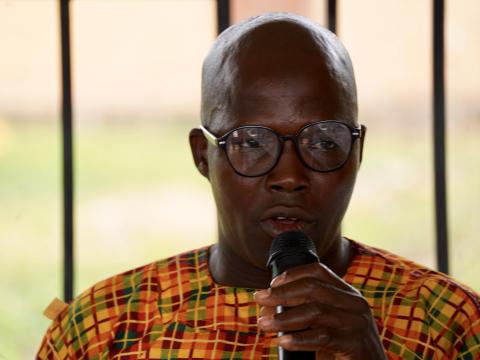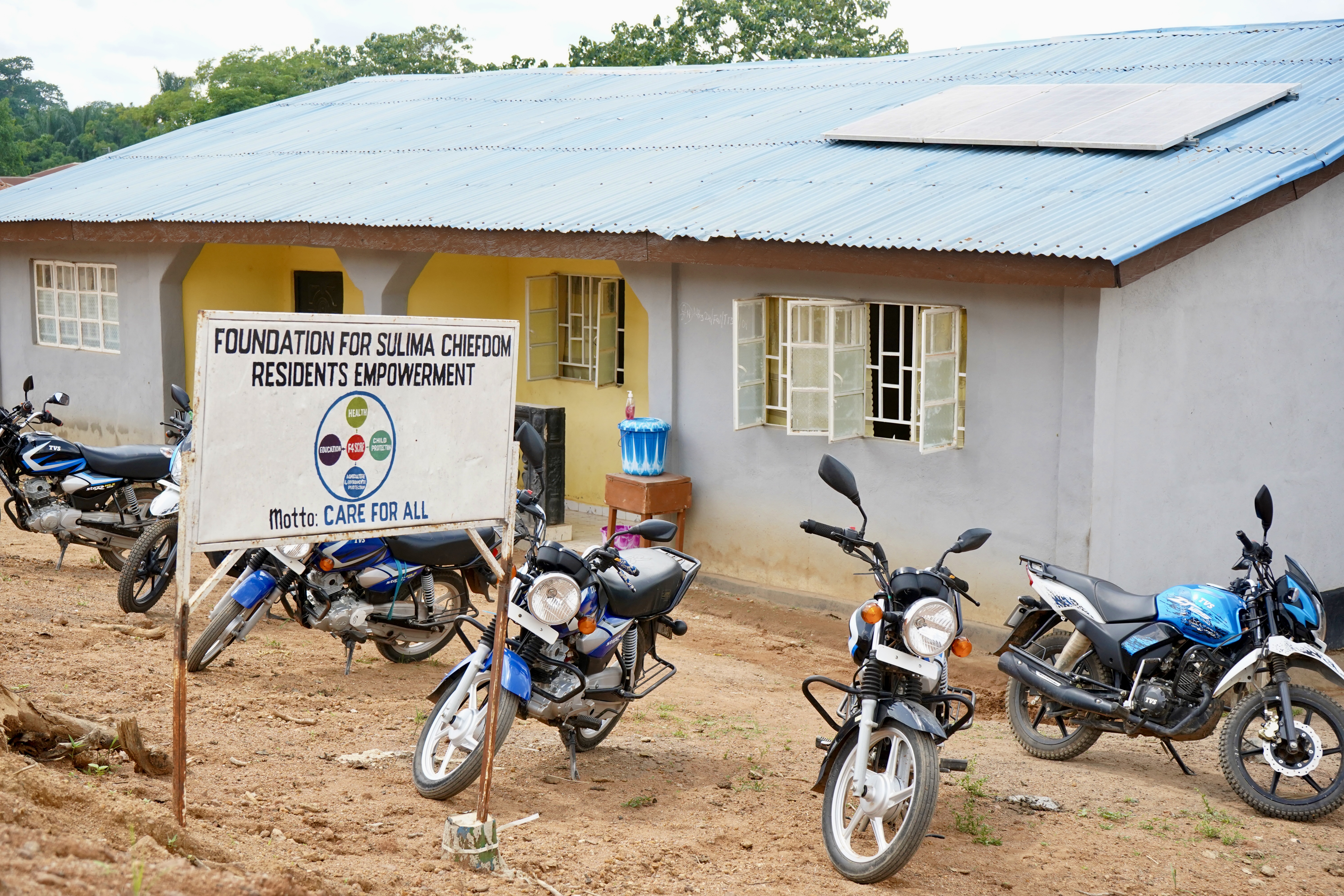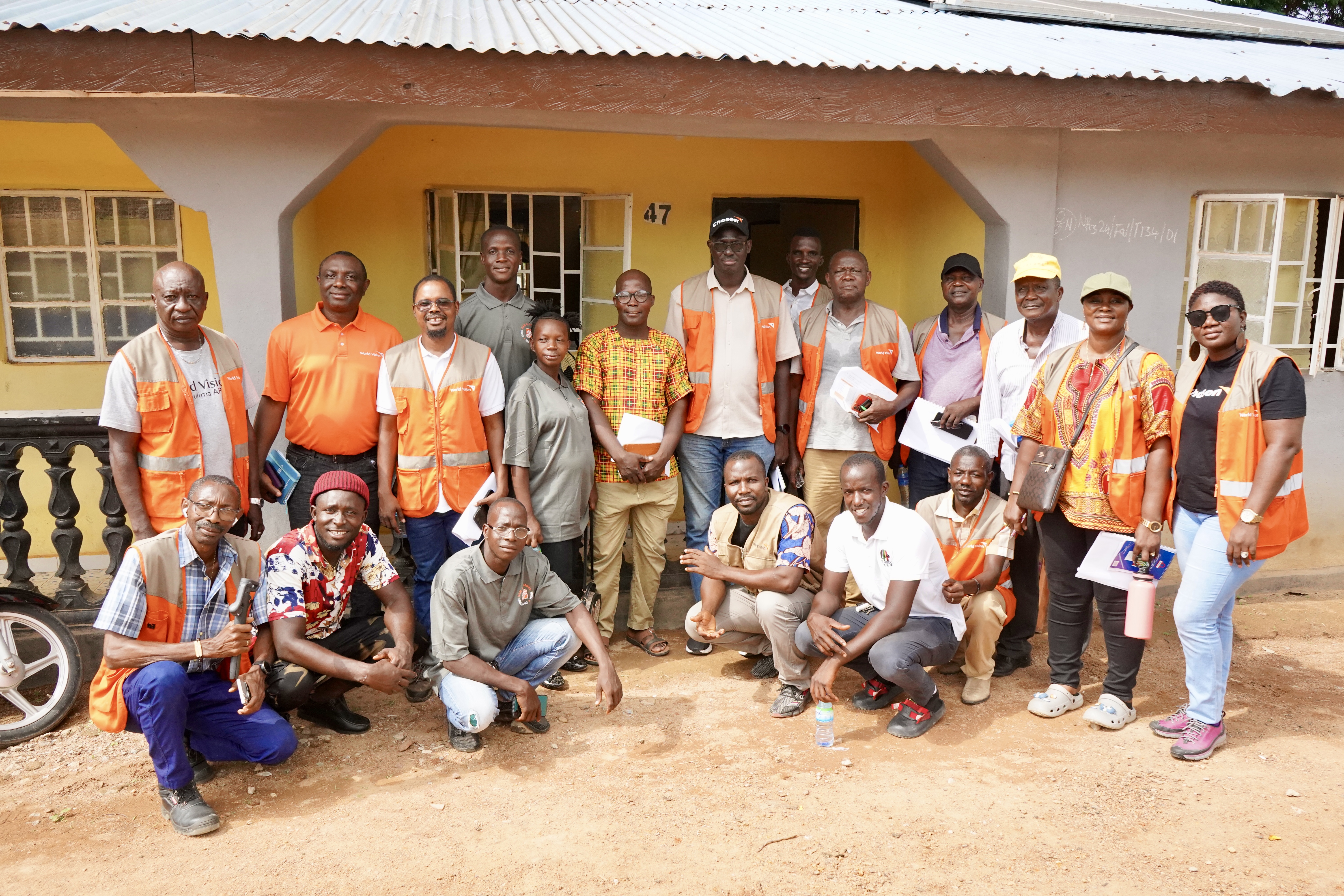Rising Up: Mohamed’s Path from Sponsorship to Leadership

The joy of transforming lives fuels World Vision’s unwavering commitment to bringing life in all its fullness to the world’s most vulnerable children. This commitment came to life during a recent visit by the Advisory Council to the Sulima Area Program (AP), one of World Vision International Sierra Leone’s flagship APs supported by World Vision United States.
In a powerful moment of connection and testimony, the Council met Mohamed Saidu Turay, a former sponsored child whose life has come full circle. Today, Mohamed is the Director of the Foundation for Sulima Chiefdom Residents Empowerment, a community-based organisation partnering with World Vision to implement child sponsorship in the Falaba District, Northern Sierra Leone.
With heartfelt emotion, Mohamed shared his remarkable 22-year journey that began in the aftermath of Sierra Leone’s brutal civil war.
“In 2002, I was a small boy learning Arabic in neighbouring Guinea. When I returned home after the war, I found that World Vision was running afternoon classes known as CREPS. I had never attended formal education before, but I admired the programme and signed up.”
CREPS stands for Complementary Rapid Education for Primary Schools. It formed part of World Vision’s wider strategy to restore access to education in post-conflict communities. It gave children like Mohamed a second chance to receive an education.

“We spent three years in class and were later allowed to sit the National Primary School Examination (NPSE) at the District Educational Council (DEC) Primary School in Falaba Town. I scored an aggregate of 316. A humanitarian who saw my results offered to support my further education.”
That act of generosity propelled Mohamed to St. Francis Secondary School in Makeni, then to the Port Loko Teachers College, where he earned his Higher Teachers’ Certificate (HTC). Committed to giving back. He then enrolled at the University of Makeni (UNIMAK), where he is now in his final year, studying for a Bachelor's degree in Education.
“Everything I am today started with World Vision. They gave me the foundation I never had. In 2024, when the local institution partnership program was introduced in Falaba, I was honoured to lead the organisation involved. As the director, I now oversee the child sponsorship component myself. That’s why I always say: World Vision has done me well.”
Mohamed’s story is a testament to the life-changing power of sustainable community development and local partnerships. Having once had no access to formal schooling himself, he is now a leader helping to build a future where every child in Falaba has the same opportunities he once had.
The Falaba District, primarily inhabited by the Yalunka, Kuranko, and Mandingo ethnic groups and is a region with strong religious traditions and a deep-rooted Islamic culture. Farming is the backbone of the local economy. World Vision’s respectful, and inclusive engagement in Falaba reflects its commitment to religious tolerance and cultural sensitivity, values that are key to its transformative impact.

‘My story is just one example,’ Mohamed concluded. ‘But it shows what’s possible when a child is given hope, support and opportunity. That’s why I will work tirelessly to ensure the success of the sponsorship programme, so that many other children can follow in my footsteps.”